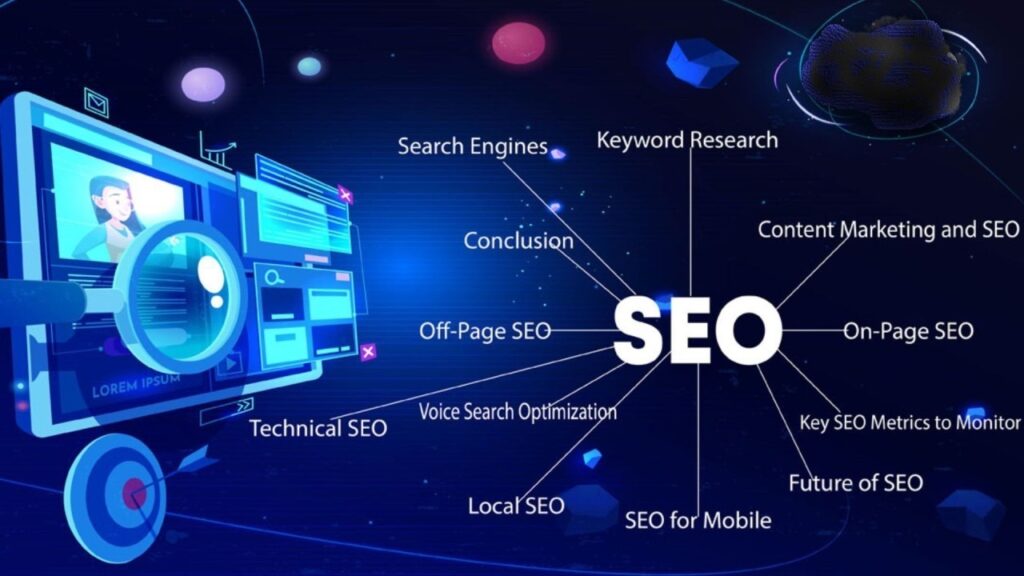Off-Page SEO: A Complete Guide to Boost Your Website Authority
A strong online presence depends on more than just well-optimized web pages. While on-page SEO ensures your website is structured and optimized internally, success in search rankings also relies heavily on what happens outside your website. This is where off-page SEO comes into play.
Off-page SEO refers to all the activities carried out beyond your website to improve visibility, credibility, and authority. It is about building trust, reputation, and relevance in the digital landscape. When applied effectively, it can significantly enhance your search engine rankings and brand recognition.

What is Off-Page SEO?
Off-page SEO includes all techniques used outside of your website to improve rankings and authority. Unlike internal optimizations, it focuses on external signals that show search engines your website is trustworthy, popular, and valuable to users.
Key components include:
- Backlinks from trusted websites.
- Brand mentions across online platforms.
- Engagement on social media.
- Positive online reviews and ratings.
- Collaborations with influencers or industry experts.
These external signals act as “votes of confidence” for your website.
Why Off-Page SEO is Important
Search engines consider external trust signals when ranking websites. If multiple reputable sites link to your content or mention your brand, it shows that your site is reliable and authoritative.
Main benefits of off-page SEO include:
- Improved website authority and credibility.
- Higher visibility in search results.
- Increased referral traffic from external sources.
- Stronger brand awareness and reputation.
- Long-term sustainability of rankings.
Without off-page SEO, even a perfectly optimized website may struggle to achieve top visibility.
Key Off-Page SEO Strategies
1. High-Quality Backlinks
Backlinks remain the most influential factor in off-page optimization. They act as endorsements from other websites, signaling that your content is trustworthy.
Best practices for backlinks:
- Focus on quality, not quantity.
- Gain links from websites with high domain authority.
- Use natural anchor text that includes relevant keywords.
- Avoid spammy or paid links that can harm your ranking.
2. Content Marketing Beyond Your Website
Publishing content on external platforms expands your reach and attracts new audiences.
Examples include:
- Guest blogging on industry-related websites.
- Publishing infographics and videos on third-party sites.
- Creating shareable research reports or case studies.
This not only builds backlinks but also increases brand visibility.
3. Social Media Engagement
Social media does not directly influence rankings but plays a vital role in off-page SEO. Active engagement can lead to more shares, visibility, and traffic.
Effective tactics:
- Share blog posts consistently.
- Engage with followers through comments and discussions.
- Collaborate with influencers in digital marketing and related niches.
4. Influencer Outreach
Partnering with influencers helps extend reach and authority. Influencers can promote your content to their followers, generating backlinks and brand awareness.
- Build genuine relationships with industry experts.
- Share content that provides value to their audience.
- Focus on long-term collaborations, not one-time promotions.
5. Online Reviews and Reputation Management
Positive reviews and ratings build trust among both users and search engines.
- Encourage satisfied customers to leave reviews.
- Respond professionally to feedback.
- Manage your online reputation across directories and platforms.
6. Forum and Community Participation
Engaging in forums or online communities establishes authority in your industry.
- Contribute helpful insights to relevant discussions.
- Share links only when genuinely valuable.
- Join Q&A sites to position yourself as a subject expert.
7. Local SEO and Citations
For businesses targeting specific locations, local citations and directory listings are crucial.
- Ensure consistent business information (name, address, phone).
- Submit to trusted local directories.
- Optimize for location-based keywords.
8. Broken Link Building
This technique involves finding broken links on external sites and suggesting your relevant content as a replacement.
- Identify broken links in your niche.
- Reach out to website owners with replacement suggestions.
- Provide high-quality content that fits naturally.
9. Press Releases and Brand Mentions
Press releases and mentions on reputable websites can generate both backlinks and brand authority.
- Share newsworthy updates or product launches.
- Partner with media outlets in your niche.
- Monitor unlinked brand mentions and request link attribution.
10. Podcasts and Webinars
Hosting or participating in podcasts and webinars can increase exposure and credibility.
- Share expert insights in your field.
- Collaborate with other professionals in digital marketing.
- Promote content across multiple platforms for wider reach.
Table: On-Page vs Off-Page SEO
| Feature | On-Page SEO | Off-Page SEO |
| Focus | Website structure and content | External signals and authority |
| Activities | Keywords, titles, internal linking | Backlinks, social media, brand mentions |
| Control | Fully under your control | Relies on third-party platforms |
| Impact | Improves readability and relevance | Builds trust and credibility |
| Example | Optimizing blog content | Getting backlinks from authority sites |
How to Build a Strong Off-Page SEO Strategy
- Audit Current Backlinks – Identify strong and weak backlinks.
- Set Goals – Define objectives such as more backlinks, higher traffic, or improved authority.
- Diversify Tactics – Use a mix of social media, guest posting, influencer outreach, and directories.
- Track Performance – Use SEO tools to monitor progress.
- Update Strategy – Stay aligned with new trends and changes in SEO performance KPIs.
Common Mistakes in Off-Page SEO
- Buying low-quality backlinks.
- Spamming forums or communities.
- Over-optimizing anchor text.
- Ignoring online reputation.
- Relying on one single strategy.
Future of Off-Page SEO
The importance of trust, credibility, and authority will continue to grow. Strategies that focus on building real relationships, delivering value, and enhancing user experience will dominate.
- Authentic brand mentions will matter more.
- AI-driven content recognition will reduce spammy link value.
- User engagement signals will play a stronger role.
Businesses that invest in ethical and consistent off-page efforts will enjoy long-term visibility in digital marketing landscapes.
FAQs
1. What is the most important part of off-page SEO?
Backlinks remain the most powerful factor, but credibility through reviews, brand mentions, and social signals are equally important.
2. How long does it take to see results from off-page SEO?
Results depend on competition and strategy. Generally, noticeable improvements take 3 to 6 months with consistent efforts.
3. Can off-page SEO work without on-page SEO?
Off-page SEO can drive visibility, but without a strong on-page foundation, results are limited. Both strategies must work together for long-term success.











